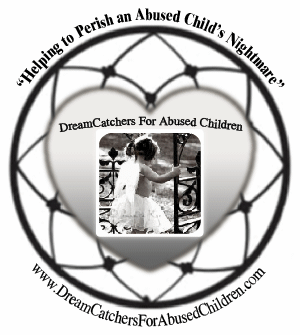When STEP-PARENTS abuse the children

Tell any group of people that stepparents are about one hundred times more likely to fatally abuse their children than are “true” parents and you can’t expect an easy audience — especially if you suggest that the key factor could just be the lack of a genetic relationship. So the questions rained down thick and fast on Canadian psychologists Martin Daly and Margo Wilson when they floated these conclusions (gleaned from their twenty years of research) at a Darwin Seminar at the London School of Economics. The questions were as varied as the audience of scientists, historians, undergraduates, and interested passersby that these provocative seminars invariably attract.
“How can you know such a thing?” people asked. “What makes you think that genetic relationships play a part, as opposed to a hundred other possible confounding variables, such as the poverty of the parents and the duration of contact between parent and child?” “What about adopted children?” “What use is such information, anyway?” “Aren’t you just stirring things up for no good reason?”
Daly and Wilson, from McMaster University, Hamilton, Ontario, did not arrive at their conclusions casually. In the 1970s, about ten years after the “battered child syndrome” had been officially recognized, they set out to see if children were more likely to be abused by stepparents than by biological parents. In addition, they wanted to explore a specific Darwinian hypothesis. There had been new developments in Charles Darwin’s idea that human behavior, as well as our physical appearance, has been shaped to a significant extent by natural selection. In particular, in the 1960s, William D. Hamilton, now professor of zoology at Oxford University, had put a new construction on the phenomenon of altruism — the process by which individuals apparently sacrifice their own self-interest, and even their lives, to benefit others.
Hamilton showed that natural selection could and would favor genes that promoted altruistic behavior, provided that the individuals who benefited from the altruism had a high chance of containing the same genes. In fact, such altruistic behavior is not altruistic at all, in the sense that moral philosophers use the term, but is entirely selfish. The gene that promotes the apparent self-sacrifice is simply promoting its own replication, by enhancing the survival of copies of itself — albeit copies contained in other individuals. Thus, said Hamilton, we might expect individuals to compromise themselves if doing so benefited their own kin, who would indeed contain copies of the gene that promoted the self-sacrificial behavior. The final mist is that parental care, and the self-sacrifice that goes with it, are merely special examples of the altruism that any organism might be expected to show toward its own kin.
Although stepparents in some societies are related to the children, Daly and Wilson reasoned that stepparents are not generally kin to their stepchildren, at least not in most Western societies. Therefore, we might expect that they would show no predilection to sacrifice themselves (in large or even small ways) on a stepchild’s behalf. They sought to find out if this hypothesis, based on Hamilton’s extension of Darwin’s ideas, was true.
Wilson says, “We were astonished to find that it was not easy even to begin to explore this hypothesis. Official statistics from the United States didn’t reveal whether parents who abused children were step or biological. It just didn’t occur to criminologists that the nature of the relationship was important, so they generally didn’t bother to record it.” She and Daly had to took beyond the official statistics, to the raw data of case histories. By 1980 they had demonstrated that children under three years of age are at least seven times more likely to be abused by stepparents than by biological parents.
Daly and Wilson believed, however, that statistics for child abuse in general might be biased by underreporting or incomplete reporting. After all, parents don’t want to admit that they have beaten their children; there are plenty of ways to conceal abuse or to explain away injuries. To gain a truer picture, the researchers decided to focus specifically on a form of abuse that is exceedingly difficult to cover up: homicide. Once again — even more astonishingly — most official statistics, including the FBI’s Supplementary Homicide Reports, the U.S. national archive, did not differentiate between killings by stepparents or by biological parents. But Statistics Canada from 1974 to 1990 did contain relevant data.
Its figures showed that children under the age of two were at least one hundred times more likely to be killed by stepparents — particularly stepfathers — than by biological parents.
“Of course,” Daly stresses, “most stepparents take to the task extremely well, and generally make loving substitute parents. The incidence of abuse is low.” Nonetheless, for stepparents the homicide rate comes out at about 600 per million parent-child groups living together, compared with just a handful for biological parents. Further examination of records in the United States and Britain revealed an increased risk for children with stepparents. Moreover, a closer look at the case histories reveals that while biological parents who kill their children are often severely depressed and, Daly and Wilson reported, “may even construe murder-suicide as a humane act of rescue,” stepparents who are homicidal “are rarely suicidal and typically manifest their antipathy to their victims in the relative brutality of their lethal acts.”
That there is a difference in incidence of fatal abuse between stepparents and genetic parents seems undeniable, but what are the reasons for it? Daly and Wilson have explored all the obvious, possibly confounding variables of the kind that their Darwin Seminar audience seized upon. Is poverty the real cause? Certainly, it is a risk factor in child abuse. And the breakup of previous marriages that often lies behind stepparentage obviously can be costly, reducing economic status. But, according to Daly and Wilson, the case histories show that child homicide is vastly greater among stepparents than biological parents at an levels of wealth. Poverty emerged as an independent, additional factor, but a relatively weak one.
Well, is remarriage itself then a factor, suggesting some fickleness of personality that might predispose a person to abuse? Apparently not. The case histories show that people who remarry typically continue to treat their own children well even when they abuse their stepchildren. Or does the difference lie in early opportunities for bonding? Are biological parents conditioned to respond well to their children because they are exposed to them from birth? “There isn’t much evidence on this,” says Wilson, “because not many stepparents see their stepchildren at a very early age, so it is hard to make a direct comparison. The few cases there are — although not statistically significant — suggest that stepfathers are at least as likely to abuse their stepchildren even when they are present at the actual birth.”
Don’t adopted children provide a cogent comparison since, as with stepchildren, they are generally unrelated to their substitute parents? In fact, their risk is roughly the same as with natural parents. Surely this negates the notion that the added risk of stepparentage has genetic origins? “It might seem to,” Daly acknowledges, “but there are two big, additional factors in adoption. First, adopting parents are obviously highly motivated and extremely closely monitored before they take on a child. Second, they tend to return children to adoption agencies far more often than is generally appreciated.” This would weed out “unbonded” adoptive parents. So, although the data from families with adopted children appear to contradict the Darwinian idea that lack of genetic relationship reduces the likelihood of care, confounding variables make direct comparison impossible.
To test the genetic hypothesis to the full, Daly and Wilson asked their own question in reverse. Why is it that the overwhelming majority of stepparents treat their stepchildren well? After all, parenthood is a huge investment, an enormous burden to shoulder for the genetic offspring of somebody else. In Darwinian terms, at least, parenting means one thing only: perpetuating yourself by reproduction. But Daly says, “We know that when some other male animals take over a new family they will kill any existing offspring of previous matings — as male lions will do. It’s easy to see why: it is in their own genetic interests to impregnate the females themselves, and existing cubs simply get in the way. Not all male animals behave this way. Incoming male baboons, for example, treat existing children well. This seems to be part of the mating effort; the females will not accept males that do not demonstrate parenting skills. This model seems to fit the human case as well. But, although stepparents do take on the task, Darwinians would predict that the full expression of parental feeling is liable to be buffered. Sometimes it’s buffered too much.”
Daly and Wilson reiterate that the overall rate of homicide by all parents of their children is low, and that most stepparents treat their new families well. Nevertheless, stepparentage emerges not only as a key risk factor in parental child abuse and homicide, but as the biggest factor. The Darwinian hypothesis — that the explanation may lie in the lack of familial relationship, and not primarily in economic or social factors — has stood up so far to the more obvious criticisms.
Finally we can ask — as the Darwin Seminar audience did — “Of what use is such knowledge? After all, most stepparents are good parents, so what good does it do to target them?” Margo Wilson answers, “In general we feel that it is better to know than not to know. It must be bad in principle to shy away from discovery just because the knowledge gained may seem uncomfortable. In fact, we can envisage good, practical reasons for this kind of knowledge. For one thing, social workers worldwide are invariably overworked. Anything that might help them to focus their efforts more accurately has to be worthwhile. And it can’t be good that everyone has been overlooking the biggest risk factor for so long.
“We might also suggest that a mother who is thinking of remarrying should bear in mind that she cannot take her new partner for granted; she cannot expect that he will automatically treat her children as if they were his own. Actually women know this already of course — but perhaps the point needs more emphasis.”
In short, if Wilson and Daly’s ideas are applied sensibly and humanely (and are not used to make stepparents feel bad), then, in principle, they could save much human misery and perhaps human life. If this proves to be so, then those who object to this kind of insight should acknowledge that by objecting, they are allowing human suffering to take place unnecessarily — and they should take moral responsibility for so doing.
As for the Darwin Seminars, they provide one of the best forums yet devised for academics in Darwinian studies to take their ideas beyond their own scientific discipline and expose them to experts from other fields — and, vitally, to the public at large. The Seminars, established at the London School of Economics two and a half years ago by Helena Cronin, are open to everyone and are already acknowledged on both sides of the Atlantic as intellectual and social salons of key importance. Cronin is herself a scholar of the new “evolutionary psychology” and author of The Ant and the Peacock: Altruism and Sexual Selection from Darwin to Today, a reappraisal of Darwin’s idea of sexual selection. She says, “Darwin always wanted his ideas ‘to throw light on man,’ and we aim to help realize his dream. We don’t yet know how much light Darwinian hypotheses win spread, but there’s already good reason to think they will be very illuminating indeed. Daly and, Wilson’s studies are among those showing that the ideas win be useful too. They can save lives.”
Colin Tudge is a science writer and research fellow in the Centre for Philosophy at the London School of Economics. His latest book on human evolution is The Day Before Yesterday (Simon and Schuster).
Colin Tudge “Relative danger“. Natural History. FindArticles.com. 27 Jan, 2010. http://findarticles.com/p/articles/mi_m1134/is_n8_v106/ai_20147994/
By the time you finish reading this, 15 children will have been abused; In the next five minutes, 30 more; Within the next hour, 360 more; And by tonight, close to 8,000+ children will have suffered from abuse, 5 of which will die. Child abuse has increased 134% since 1980 and is now considered a worldwide epidemic. The high jump in child abuse deaths and the shocking increase in statistics highlights the frightening lack of public knowledge.
Educate Yourself -- Learn the Facts
It May Just Save a Child's Life!!


















![Validate my RSS feed [Valid RSS]](http://dreamcatchersforabusedchildren.com/wp-content/uploads/2009/10/valid-rss.png)













Mother Of The Bride Wedding Speech… | Home & Family Says:
[…] When STEP-PARENTS abuse the children | DreamCatchers For Abused Children […]
Posted on March 24th, 2010 at 11:03 am
danice Says:
can u please tell why my 11 year old is so mean and rude half the time, no my husband who is her stepparent is very hard on her a lot, and i am wondering if that is one of her problems, also the fact that she does not get out much because we don’t own a car.
Posted on August 27th, 2010 at 11:12 pm